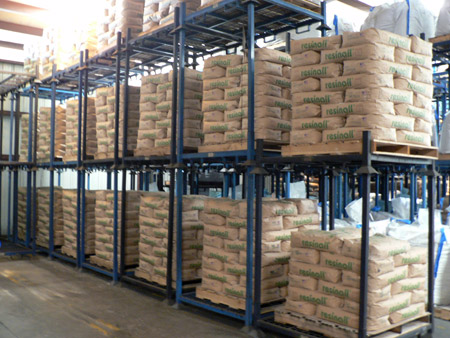Resins for Floor and Construction Adhesives

A wide range of resins find use as tackifiers in these adhesive applications. Construction adhesives include contact adhesives, mastics, caulks and sealants. They are soluble in naphthenic oils and contribute to the formation of a stable emulsion when used in these types of adhesives. An important requirement for this application is low resin cost. Resins are available in both solid flake and solution grades. Commonly used products include the following;
- Neutral Hydrocarbon Resins – These resins are produced by the thermal polymerization of dicyclopentadiene with other hydrocarbon monomers and co-dimers. They are low molecular weight resins which have good compatibility with a wide range of other resins, elastomers and modifiers. They find wide use due to their low cost, ease of emulsification and excellent water resistance.
- Rosin – Rosin and its derivatives play an important role as a tackifying agent in many adhesive applications. Resinall produces rosin esters based on either tall oil rosin or gum rosin and esterified with pentaerythritol or glycerol. These resins compete with products derived from petroleum or terpene feedstocks. Important properties which influence rosin ester selection are softening point, acid number, color, odor and compatibility.
- Modified Hydrocarbon and Hybrid Resins – A class of resins which combine the chemistry of hydrocarbons and modified rosin esters. These resins are based on the reaction of dicyclopentadiene and other hydrocarbon olefins with various rosin acids, tall oil fractions, dibasic acid and a polyhydric alcohol; usually pentaerythritol or glycerol.
- Hydrogenated Hydrocarbon Resins - These resins are fully hydrogenated cycloaliphatic hydrocarbon resin based on the thermal polymerization of dicyclopentadiene mixtures. These resins have very low color, low odor, excellent thermal stability, and compatibility with a wide range of elastomers.

